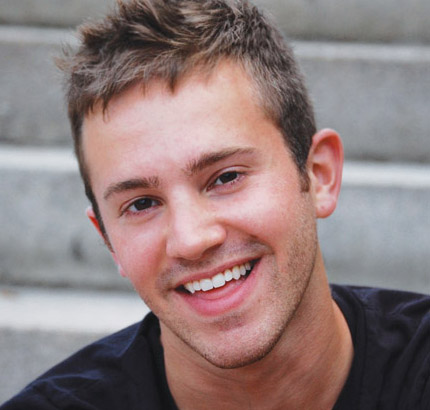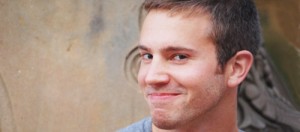
Nine Shots at City Hall

Remembering a gay icon.
By Blake Hayes
“If a bullet should enter my brain, let that bullet shatter every closet door.”
Harvey Milk was just forty-eight years of age when he was shot five times and killed on November 27, 1978. During his five years in San Francisco politics, and his eleven short months in office, he’d frequently say, “A true function of public officials is not just to pass laws and approve appropriations, but to give hope.”
Thirty-five years later, his message lives on.
Dark clouds hovered over San Francisco on the morning of November 27 when Milk’s former co-supervisor Dan White grabbed his .38 and headed to City Hall.
Milk was in an especially good mood that Monday. The board of supervisors was set to vote on funding for a new gay community center that day, and he’d just secured the support he needed for it to pass.
Especially with the conservative former cop Dan White newly gone from the board, Milk expected it to be the first of many successful ventures for the city—and his beloved gay community.
White and Milk had sparred over several issues, but it was Milk’s vote to put a psychiatric center in White’s district that sent White over the edge. White had campaigned to keep the facility out of the neighborhood, so when Milk changed his vote against him, White saw it as a deep betrayal. To get back at Milk, White voted against a gay rights ordinance that passed anyway. But Milk was now in his crosshairs.
After Mayor George Moscone—an ally of Milk and the gay community in San Francisco—refused Dan White’s plea to get his supervisor seat back, the mayor was also a target.
Around 10:30 a.m., White slipped through an open window at City Hall, avoiding metal detectors, and asked for a meeting with the mayor, who agreed to see him alone. After a brief argument, witnesses heard the dull pop of four gunshots. The mayor was dead.
As White swiftly headed for Harvey’s office, he reloaded his Smith & Wesson with different bullets that would explode on impact.
He asked to see Milk, who invited him in.
“A sharp streak of pain sped through Harvey,” writes Randy Shilts in his biography of the gay icon. “He fired again, cutting short Harvey’s cry. The slug tore into Harvey’s right wrist, ripped into his chest and out again, finally lodging near his left elbow. Another dum-dum bullet pounded Milk in the chest…. [Then] a fourth bullet…sliced into the back of his head and out the other side, spraying blood against the wall…. White gripped the revolver’s handle and pulled the trigger once more…. Shards from [the bullet’s] hollow tip exploded when they struck Harvey’s skull, tearing and ripping into his brain.”
You can’t help but repeat Milk’s ominously foretelling words: “If a bullet should enter my brain…” It did, a year and a half before Harvey Milk’s fiftieth birthday.
Though he was a prominent spokesman for the gay community at the time, his impact went far beyond his short time as an “out” politician.
If only he could have seen the impact he had.
If only he could have seen the annual shattering of closet doors each year on National Coming Out Day.
If only he could have seen the students who have graduated from the Harvey Milk High School in New York.
If only he could have seen his message brought to the big screen, and into millions of homes, when the film Milk was honored with two Oscars in 2009.
And yet, without his tragic assassination, would any of those things exist?
In the tape he recorded for his friends and colleagues to play in the event of his assassination, Harvey echoed his most common theme: hope.
“I ask for the movement to continue, for the movement to grow, because last week I got the phone call from Altoona, Pennsylvania, and my election gave somebody else, one more person, hope. And after all, that’s what this is about…. It’s about giving those young people out there in the Altoona, Pennsylvanias hope. You gotta give them hope.”
I hope that this year, on November 27, the thirty-fifth anniversary of Harvey’s death, we can all take a minute to contemplate his legacy—and the hope and inspiration in his message that continues to have an impact from coast to coast.
“You gotta give them hope.”
Blake Hayes is the morning host at Mix 96.5 KHMX.











Comments